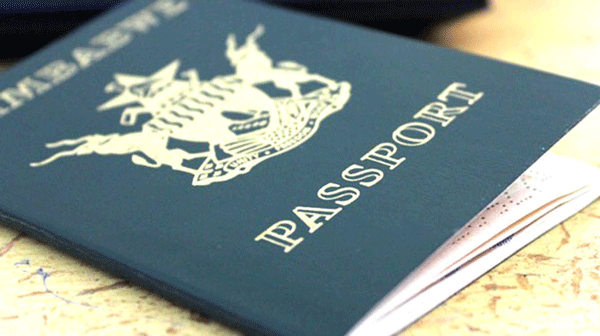Source: New passports saga deepens – The Standard
BY MIRIAM MANGWAYA
THERE is confusion at the Registrar General’s (RGs) office following the launch of e-passports as the government department is still issuing old passports, with its workers in the dark about the new development.
The e-passport which will contain key features such as an electronic chip was launched last week by President Emmerson Mnangagwa amid a global supply crunch of the chips.
The chip holds the same information that is printed on the passport’s data page.
There has been a shortage of the chips, also known as semiconductors, since 2020.
International chip companies and experts on national and international chip identity systems warn that the global shortage of microchips threatens the ability of governments and companies to issue biometric digital ID documents such as passports and national identity cards.
The Security Identity Alliance (SIA), a grouping of large scale European identity system providers, last month urged governments to take on responsibility as the chip shortage has spread to other areas of manufacturing covering all manner of consumer goods including washing machines, smartphones and others.
“Authorities in charge of issuing ID documents should estimate their needs in terms of document deliveries for the next few years and engage with their industry partners.
“The current situation calls for the optimisation of inventory management and accurate forecasting,” the SIA said in a statement last month.
Experts predict that the chip shortage will persist beyond 2023.
The Home Affairs ministry gazetted Statutory Instrument (SI) 273 of 2021 introducing the e-passport and announced that old passports would cease to be a legal travel document after December 31, 2023.
The Zimbabwe Lawyers for Human Rights (ZLHR) last week challenged the SI arguing that the responsible minister did not have constitutional powers to ban old passports.
Investigations conducted by The Standard showed that the RGs office was issuing out old passports to citizens, who applied for the traveling documents before the introduction of the e-passports and even those that were submitting applications now.
The new ordinary e-passport costs US$100, with an extra passport application fee of US$20 that will be processed at CBZ Bank.
An ordinary passport was pegged at US$60 prior to the introduction of the e-passport.
Officials at the RG’s offices were in the dark when interviewed by this publication as members of the public raised alarm over the introduction of the e-passport, which was marred with policy inconsistencies.
Home Affairs minister Kazembe Kazembe and his deputy Ruth Maboyi could not provide clarification on when the government would start issuing the e-passports.
Kazembe requested questions in writing, but later said he was busy.
“I am still busy at the moment. I will respond to your question later,” he said.
Maboyi said: “I cannot comment on that. The minister knows better how to respond.”
Several attempts by The Standard to get a comment from the acting registrar-general Henry Machiri were in vain as he was not picking his phone.
SI 273 of 2021 states that the passports in use will be unacceptable by December31, 2023, but the Home Affairs ministry had issued a statement earlier saying that the old passports would be valid until they expired, which could be before or after December 31, 2023.
The country faces a shortage of passports and identity card document consumables, and has a huge backlog of more than 400 000 passports dating as far back as 2018 due to shortages of foreign currency to import the required consumables.
While launching the e-passport, Mnangagwa said the new system would enable production of 30 000 passports per day, starting next year to clear the backlog.
In 2016, the late former resident Robert Mugabe also launched the same e-passport.
When The Standard team visited the RG’s offices, there long queues of people seeking travel the documents.

